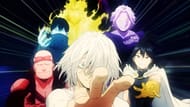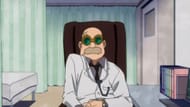My Hero Academia is often criticized for some elements in its world-building, and the nature of Quirks, the power system, is one of them, with people claiming that its evolution and how some get some abilities and others get a lot more powerful ones doesn't make a lot of sense. However, that is precisely the point and a logical outcome when viewing it scientifically.
While it has never been stated when My Hero Academia takes place, many fans have speculated that it is a century or two into the future, as per the notion that All For One is over a hundred years old. Therefore, it means that Quirks have been manifesting for at least one hundred years, which could explain why scientists still don't clearly understand what they are and how they work.
Disclaimer: This article contains spoilers for the series. Any opinion expressed here belongs to the author and not Sportskeeda as a whole.
How Quirks in My Hero Academia make sense by not having a logical explanation

A common criticism that My Hero Academia has received is that Quirks don't make a lot of sense because they are described as the next step in human evolution, but there isn't an inherent logic. For example, there are characters like Katsuki Bakugo, who can make explosions, and Spinner, whose entire body has adopted the features of a reptile.
However, that is part of why it makes sense that they are not understood properly, as they represent a new step in the evolution of mankind. All For One was apparently one of the first to manifest a Quirk and is said to be about one hundred years old, which means that these special powers have been around for at least a century.
It took human science, in real life, centuries to understand some basic elements of a person's body and even nature itself. Therefore, it is logical that the people in this series don't fully grasp what Quirks are and the biological mechanics behind them, which makes them quite unique.
More reasons to back this notion

A good example of how the understanding of Quirks was still under development throughout the story was Dr. Garaki's Singularity theory, which had the idea that the powers of each new generation would be stronger than the ones that came before. It makes sense to a degree when considering how people with Quirks are very likely to reproduce with each other, leading to the creation of an even more powerful child, with Shoto Todoroki being a prime example of that.
Therefore, My Hero Academia presents Quirks as a field yet to be fully understood and in a constant state of development. This is an actual and realistic take on scientific growth because it doesn't happen in a vacuum and requires a lot of research and experimentation to understand better how they work.
Final thoughts
The Quirks are presented as a difficult topic to understand, and even scientists within that world have yet to grasp how they work in a person's biology. It goes to show that things in that world are yet to be understood.
Related articles
- Did Bones ruin an iconic Deku-Shigaraki scene in My Hero Academia season 7? Manga vs. anime, explored
- Shigaraki's Decay Quirk was never supposed to be destructive, and Horikoshi sneakily revealed it in My Hero Academia before the final fight
- Deku could not become a better hero than All Might by My Hero Academia's conclusion, and it's obvious why
- Why My Hero Academia's Quirk Singularity theories weren't well thought out, explained
